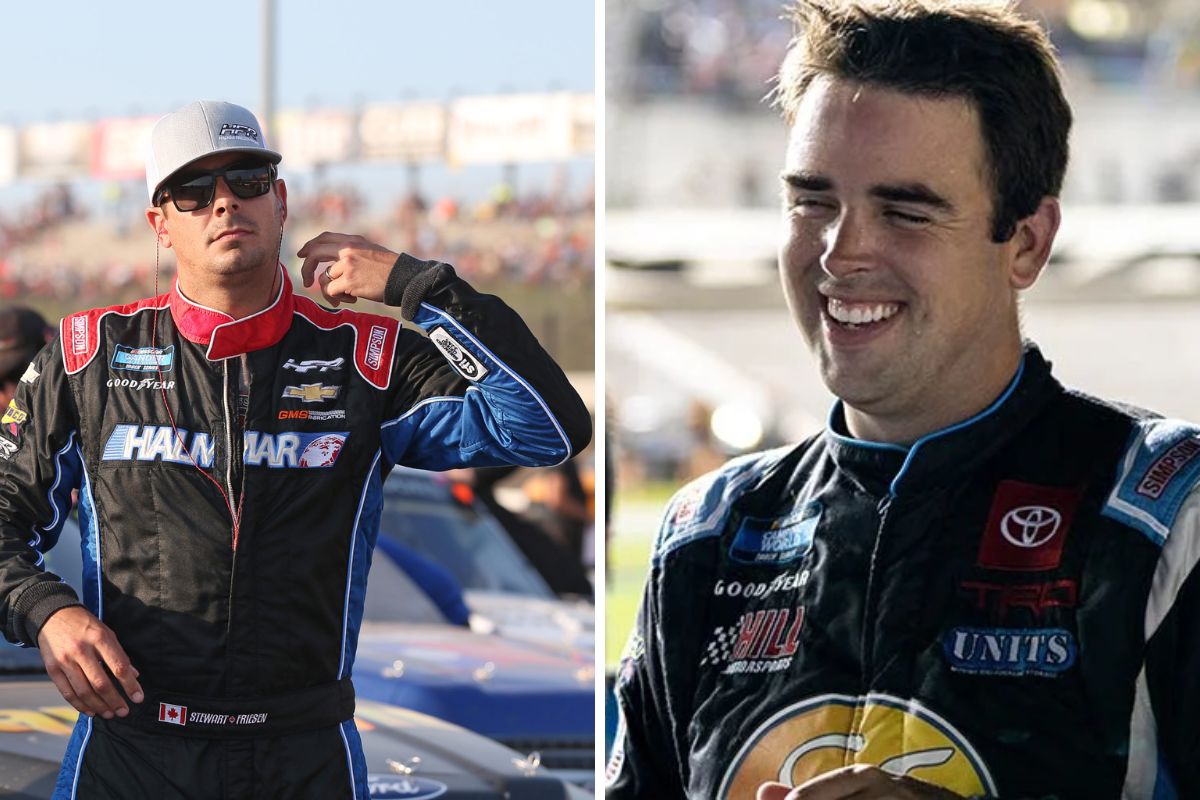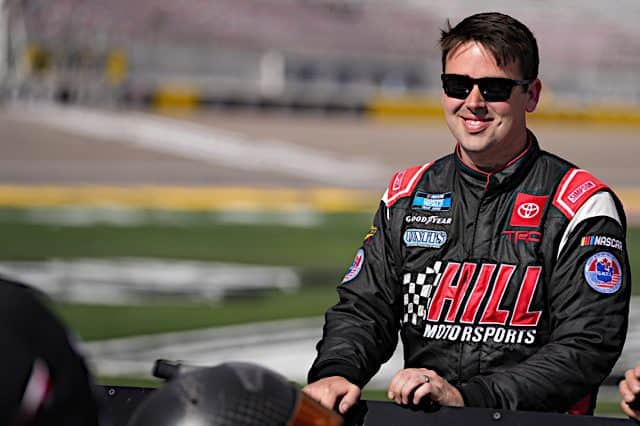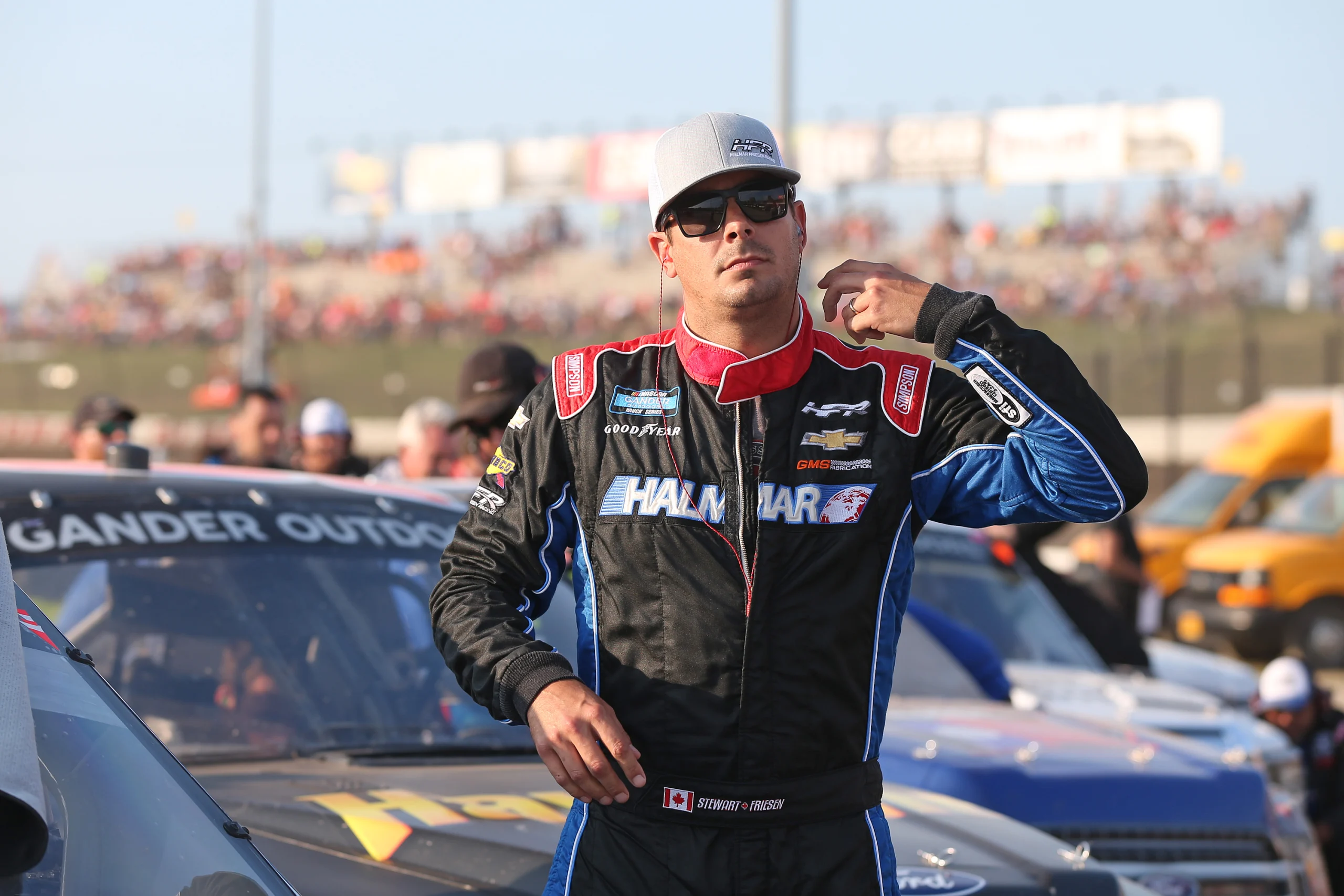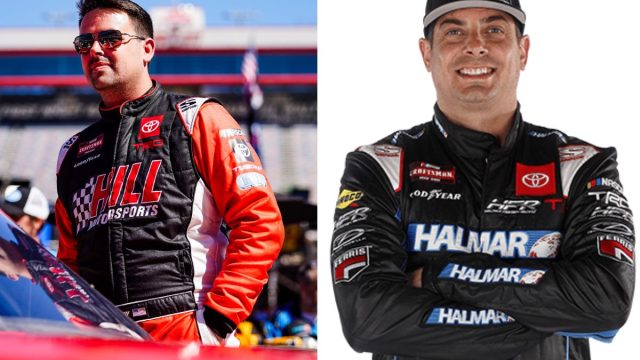Timmy Hill and Stewart Friesen Clash: The Martinsville Speedway conflict between Timmy Hill and Stewart Friesen epitomizes escalated tensions within the NASCAR Truck Series, underscoring the fine balance between aggressive competition and outright recklessness. This incident not only highlights personal hate but also reflects broader concerns over the direction competitive racing is heading. With the altercation intensifying both on and off the track, questions abound regarding sportsmanship, strategic driving, and the overarching values that underpin the sport. The extensive media coverage and public reaction amplify the significance of this clash, prompting a critical examination of NASCAR’s culture. The consequent ramifications for driver conduct and sportsmanship reveal an imperative for introspection and potential reform in the racing community, promising shifts in norms and expectations.
Key Takeaways
- Timmy Hill and Stewart Friesen were involved in a high-tension clash during a NASCAR Truck Series race at Martinsville Speedway.
- Post-race, the drivers had a heated confrontation on pit road, showcasing their frustration and competitive spirit.
- The incident highlighted the fine line between aggressive racing tactics and recklessness, sparking debates on sportsmanship.
- Media coverage emphasized concerns over driver conduct, safety, and the need for stricter racing ethics enforcement.
- The altercation has led to increased scrutiny on NASCAR’s response and potential reforms in racing culture and sportsmanship standards.
Racing Tensions Boil Over
Amid the high-speed drama of the NASCAR Truck Series race(Long John Silver’s 200) at Martinsville Speedway, the rising tensions between Timmy Hill and Stewart Friesen reached a boiling point, highlighting the fierce competitiveness and strained relations innate in motorsport. The culmination of their heated rivalry was not just a spectacle of intense competition but also a manifestation of the high stakes involved in every race.
Throughout the event, on-track aggression was palpable, culminating in a post-race confrontation that laid bare the raw nerves and driver dissatisfaction simmering beneath the surface.
This incident, far from being an isolated event, emphasizes a broader narrative within professional racing: the thin line between aggressive tactics deemed necessary for victory and actions that cross into recklessness. For Hill and Friesen, the Martinsville race became a flashpoint that brought these tensions to the forefront. Their interaction post-race, while momentarily capturing the spotlight, highlighted a deeper issue within motorsport: the constant balancing act drivers face between assertiveness on the track and maintaining professional decorum off it. Therefore, their clash serves as a case study in the complexities of competitive racing dynamics.

Confrontation on Pit Road
Following the race’s conclusion, the confrontation on pit road between Timmy Hill and Stewart Friesen served as a vivid illustration of the intense pressures and emotions that drivers navigate in the heat of competition. The pit road drama unfolded as both drivers exited their vehicles, visibly frustrated and animated in their discussion. This was not a mere exchange of words; it was an outpouring of driver emotions, stemming from the high stakes of racing at the professional level.
Hill’s criticism of Friesen’s aggressive behavior on the track brought to light the fine line between competitive driving and recklessness. His remarks highlighted a broader dialogue about what constitutes fair play and where the line should be drawn in motorsport. Friesen’s admission of his frustration and mistakes emphasized the human aspect of racing—recognizing that even veterans of the sport are not immune to the pressures that come with it.
This post-race confrontation raised questions about sportsmanship and the extent to which competition justifies aggressive tactics. The incident on pit road not only revealed the raw emotions involved in racing but also sparked a conversation about the values that underlie the sport.
Media Reaction Highlights Broader Concerns
The media’s response to the altercation between Timmy Hill and Stewart Friesen at Martinsville has shed light on broader concerns within NASCAR, particularly focusing on the themes of respect, sportsmanship, and safety in the Truck Series. Extensive media coverage has not only captured the moment’s intensity but also sparked a thorough examination into the underlying issues plaguing the series.
- Driver Conduct: Reports have highlighted Hill’s post-race comments, underscoring a pervasive issue with driver behavior that transcends experience levels. This has prompted a dialogue about the need for stricter enforcement of racing ethics and the establishment of a more robust framework for penalizing unsportsmanlike behavior.
- Sportsmanship Issues: The incident between Hill and Friesen serves as a microcosm for broader sportsmanship concerns within NASCAR. Analysts are calling for a renewed focus on sportsmanship, suggesting that fostering a culture of respect and integrity is essential for the sport’s long-term health.
- Safety Concerns: Safety concerns have been catapulted to the forefront, with the altercation underscoring the potential dangers of aggressive driving. Media discussions have stressed the importance of balancing competitive racing with the imperative of ensuring driver safety, suggesting that the incident at Martinsville could be a catalyst for change.

The analysis of race controversies through the lens of media coverage has illuminated the urgent need for reforms in driver conduct, sportsmanship, and safety protocols within NASCAR.
Veterans Under Scrutiny
In light of recent events at Martinsville, the scrutiny over veteran drivers like Timmy Hill and Stewart Friesen has intensified, revealing underlying tensions that challenge the foundational respect and camaraderie within NASCAR’s ranks. The incident not only highlights the personal grievances between Hill and his fellow veterans, including Grant Enfinger, but also serves as a microcosm of broader respect issues that seem to be eroding the fabric of driver dynamics within the series. This discord among seasoned competitors emphasizes a shift from traditional sportsmanship standards to a more aggressive pursuit of victory, often at the expense of mutual respect.
The critique lodged by Hill points to a deeper narrative where rivalries reign over camaraderie, igniting competitive clashes that test the limits of professional decorum. Such developments suggest that the pressures of high-stakes racing are recalibrating relationships on the track, prompting a reevaluation of what constitutes acceptable conduct among peers. As veterans of the sport, the actions and attitudes of drivers like Hill and Friesen not only influence their immediate on-track engagements but also set a precedent for emerging talents, raising questions about the future direction of sportsmanship and competition within NASCAR.
“I thought he had respect for us but that move there was just disrespectful and I just wanted to go down and talk to Stewart about how I felt. He let me know that he had a rough race, a lot of guys run him over but it had nothing to do with me. He’s a veteran in this series…the kids out here driving, they’re reckless, they’re dangerous, it’s disrespectful…he’s (Freisen) not the only one, Grant Enfinger ran into me. A lot of veterans I lost respect for today, they’re no better than these kids out here.” – (Hill)
NASCAR’s Response Awaited
Amid increasing anticipation, stakeholders within the NASCAR community eagerly await the governing body’s response to the recent Martinsville incident, which has brought to light pressing concerns over driving standards and respect among competitors in the Truck Series. The altercation, coupled with the ensuing comments, has highlighted a critical juncture for NASCAR, prompting a reassessment of the culture within the sport.
In this crucial moment, several key aspects are under scrutiny:
- NASCAR’s Approach: The organization’s upcoming decisions will be indicative of its commitment to maintaining integrity and sportsmanship within the series.
- Driver Perspectives: How competitors view and adapt to any new regulations or cultural shifts will have a significant impact on the effectiveness of NASCAR’s response.
- Safety and Future Implications: Beyond immediate disciplinary measures, the broader implications for safety standards and the future culture of racing within the Truck Series are paramount.
As fan reactions vary from concern to disappointment, the forthcoming response from NASCAR is not just awaited but seen as a determinant of the series’ direction. The incident at Martinsville Speedway has undeniably spotlighted the need for clear, decisive action to uphold the sport’s values and safeguard its continued respect and integrity.

News in Brief
The altercation between Timmy Hill and Stewart Friesen at Martinsville highlights a critical moment of tension within the motorsport community. This incident, extending beyond a mere confrontation on pit road, illuminates the broader concerns of sportsmanship and professional conduct in high-pressure environments.
The media’s engagement with this event highlights the necessity for a nuanced understanding of competitive dynamics. The anticipation of NASCAR’s response reflects the imperative for governing bodies to address behavioral standards, ensuring the sport’s integrity and the safety of its participants.
Also Read: Timmy Hill’s Cup Series Return: Shocking Last-Minute Comeback
